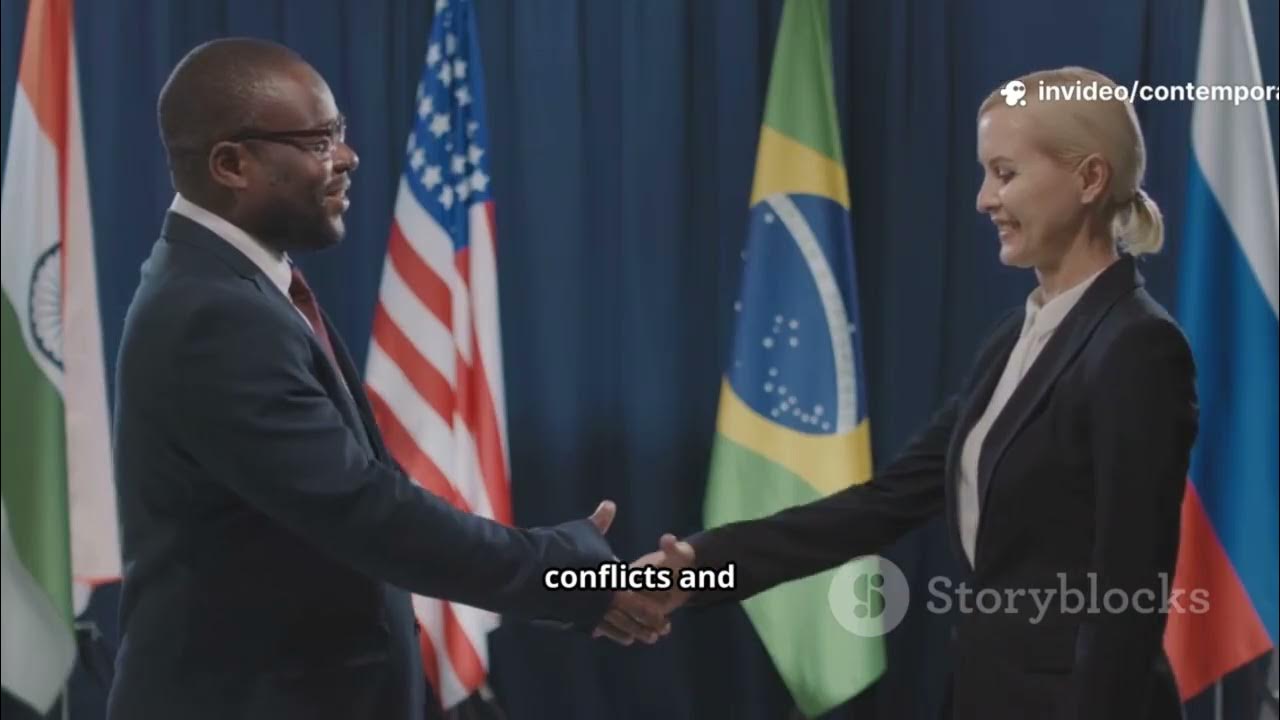International Law | LouvainX on edX | Course About Video
Summary
TLDRProfessor Pierre d'Argent introduces an introductory course on public international law, emphasizing its relevance in today's interconnected world. He outlines the course's focus on understanding the creation, respect, application, and enforcement of international law, highlighting its importance for law students, political scientists, and anyone interested in global affairs. The course aims to equip learners to discern legal arguments within international news and reports.
Takeaways
- 🌐 International law is pervasive, affecting travel, trade, migration, and environmental protection.
- 📈 The expansion of trade and increasing human rights concerns highlight the growing relevance of international law.
- 🔍 Diplomats and states use international law for negotiations, treaty-making, and dispute resolution.
- 🏛️ International law governs relations between states and is also relevant to international organizations and non-state actors.
- 🌟 Professor Pierre d'Argent introduces himself as an expert in international law, both academically and practically.
- 📚 The course aims to provide an understanding of the creation, respect, application, and enforcement of international law.
- 🤝 International law is essential for states to settle disputes, either through courts or arbitration.
- 🛡️ The United Nations Security Council plays a significant role in international law, including the authorization of force and peacekeeping operations.
- 📈 The field of international law is dynamic and expanding, becoming increasingly relied upon in our interdependent world.
- 🔎 The course will explore the mechanisms for seeking justice when international law is breached.
- 👩🎓👨🎓 The course is suitable for law students, political science, international relations, journalism students, and anyone interested in understanding international law and its application.
Q & A
What is the main focus of the video script provided?
-The main focus of the video script is to introduce the concept of public international law and its relevance in today's interconnected and complex world.
Who is Pierre d'Argent and what is his professional background?
-Pierre d'Argent is a professor of international law at Universite of Louvain in Belgium and also practices international law as a member of the Brussels Bar.
What does the term 'public international law' refer to in the context of the script?
-In the script, 'public international law' refers to the body of law that governs the relations between states and also relates to the activities of international organizations, as well as increasingly to individuals, corporations, NGOs, and other non-state actors.
Why is international law considered an exciting and expanding field according to the script?
-International law is considered an exciting and expanding field because as the world becomes more interdependent and complex, and new institutions are established to make international law more effective, it has never been so much relied upon, used, and developed.
What are some of the areas where international law is applied as mentioned in the script?
-The script mentions areas such as trade, human rights, protection of endangered species, diplomatic negotiations, treaty contracts, prosecution of international crimes, dispute settlements, and actions taken by the United Nations Security Council.
What is the purpose of the introductory course on public international law taught by Pierre d'Argent?
-The purpose of the course is to help students understand how international law is made, by whom it must be respected, how it is applied, and what happens when binding rules are breached, including seeking justice in the international community.
Who is the target audience for the introductory course on public international law?
-The target audience includes law students, those studying political sciences, international relations, journalism, or anyone interested in understanding international law, its role in today's world, and how it can be used or discerned in international news and reports.
What does Pierre d'Argent aim to teach students about the creation and enforcement of international law?
-Pierre d'Argent aims to teach students how international law is made, who must respect it, how it is applied, and the mechanisms for addressing breaches of binding rules and seeking justice.
How does the script describe the relationship between international law and non-state actors?
-The script describes the relationship by stating that international law increasingly concerns individuals, corporations, NGOs, and other non-state actors, indicating its broadening scope and relevance.
What role does the United Nations Security Council play in the context of international law as per the script?
-According to the script, the United Nations Security Council plays a significant role by taking binding measures on member states, authorizing the use of force, or creating peacekeeping operations.
What are some of the contemporary challenges or issues that international law addresses as mentioned in the script?
-The script mentions contemporary challenges such as human rights violations, endangered species protection, international crimes prosecution, and the settlement of disputes between states.
Outlines

此内容仅限付费用户访问。 请升级后访问。
立即升级Mindmap

此内容仅限付费用户访问。 请升级后访问。
立即升级Keywords

此内容仅限付费用户访问。 请升级后访问。
立即升级Highlights

此内容仅限付费用户访问。 请升级后访问。
立即升级Transcripts

此内容仅限付费用户访问。 请升级后访问。
立即升级浏览更多相关视频

Hukum Internasional - Pertemuan 1 (Fokus Materi: Pengertian Hukum Internasional)

Lexicology as a linguistic subject | Z.T.Tukhtakhodjaeva (PhD) Associate Professor

1. The Importance of Chemical Principles

Introduction to the Contemporary World

Compliance in International Law with Mark Chinen | Seattle University School of Law

International Economic Law Introduction
5.0 / 5 (0 votes)
